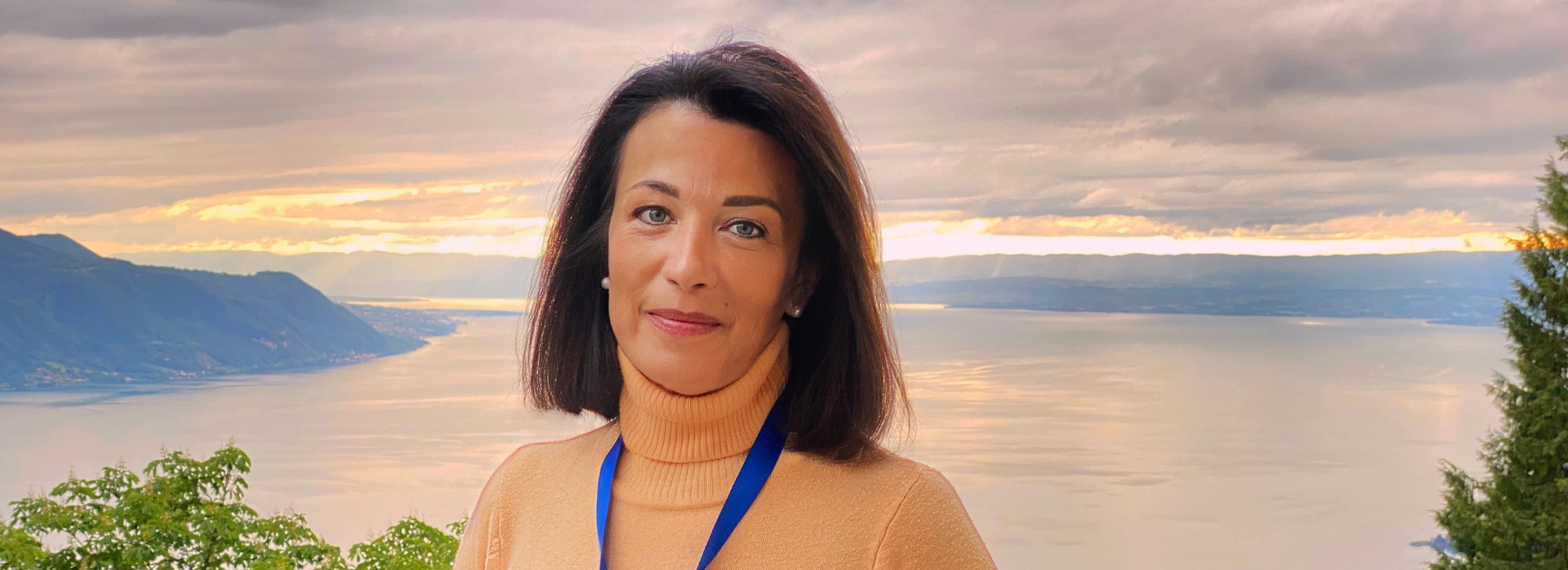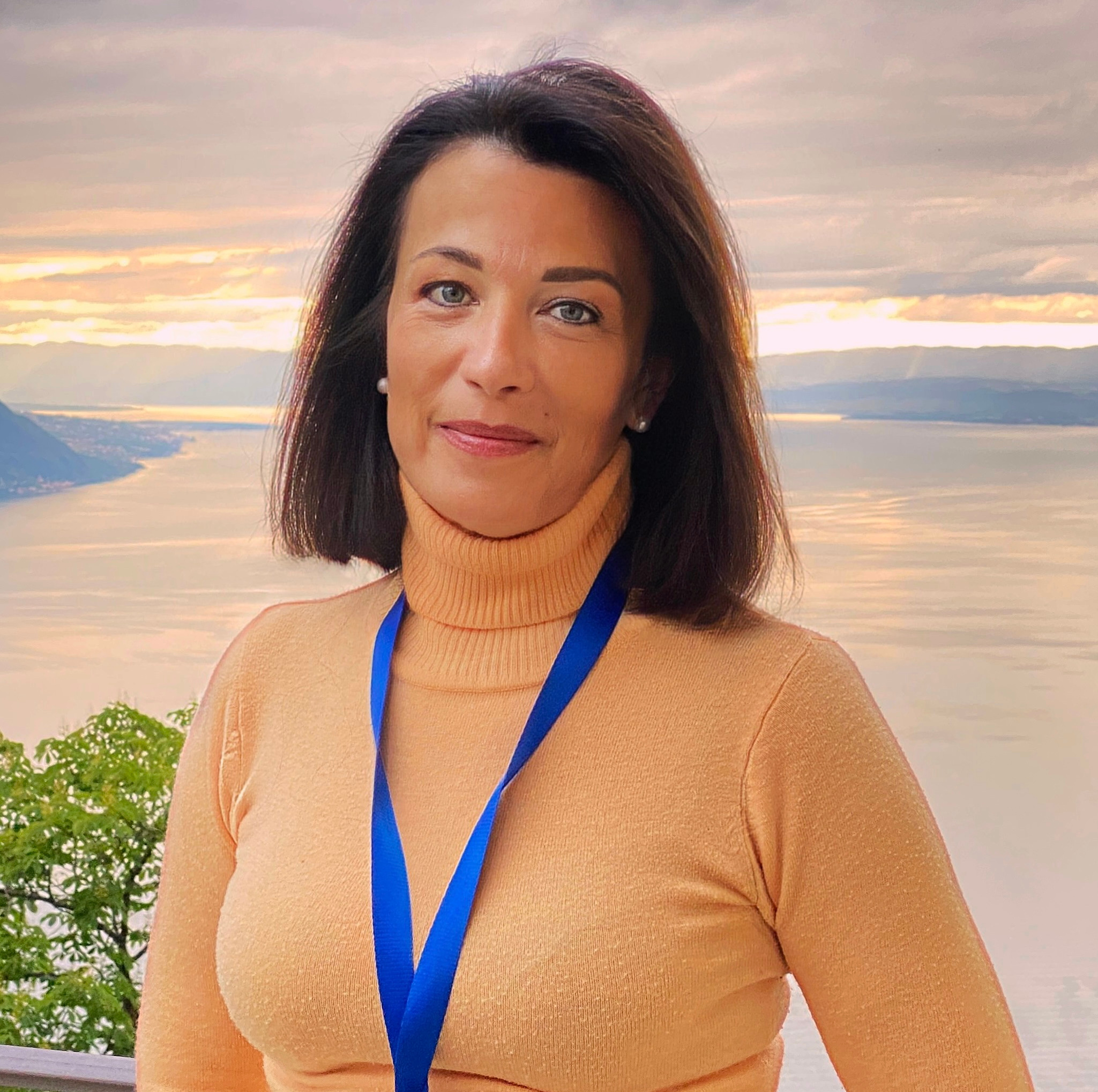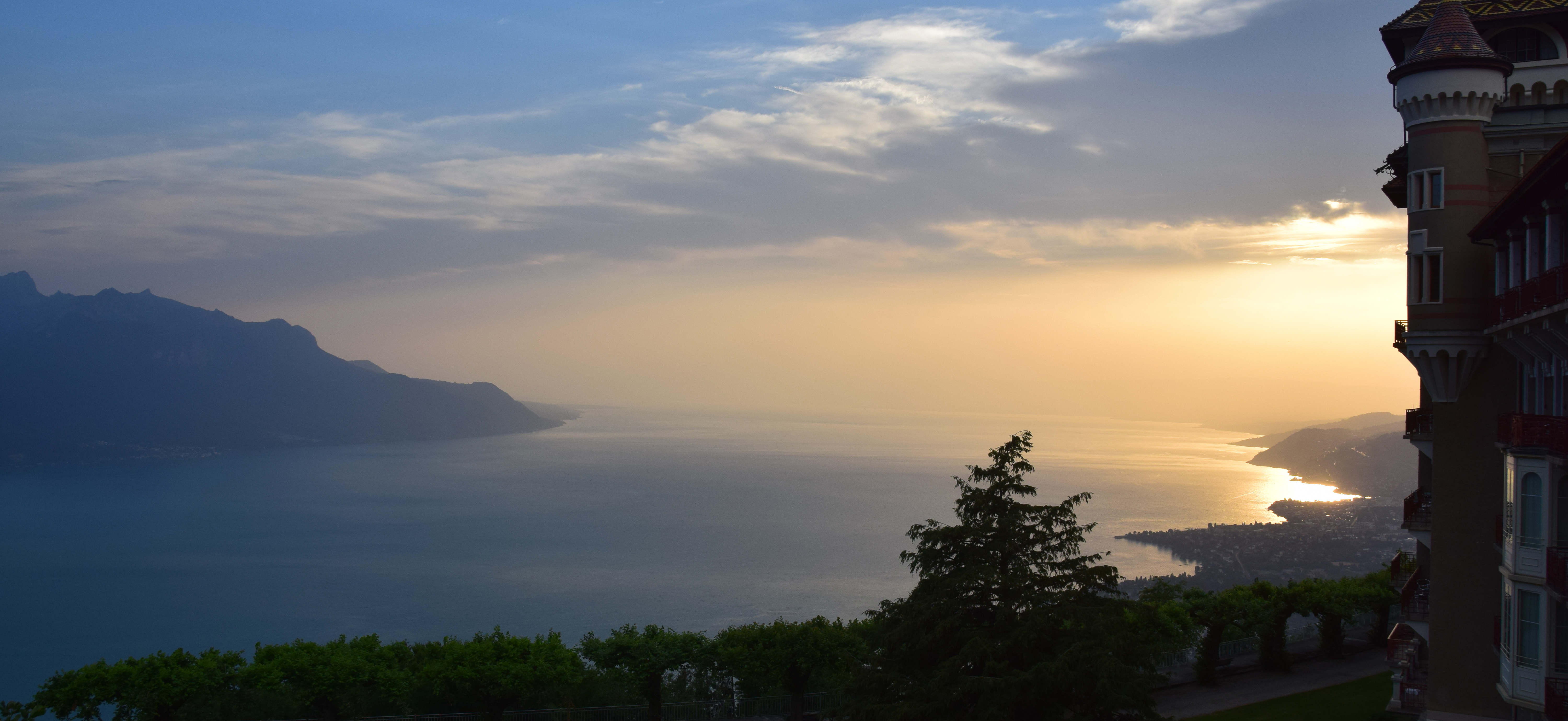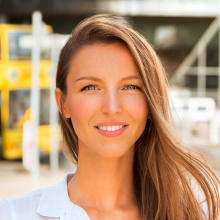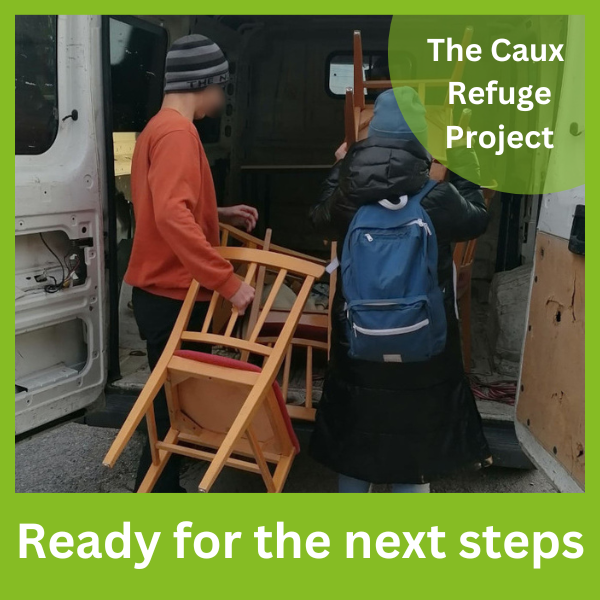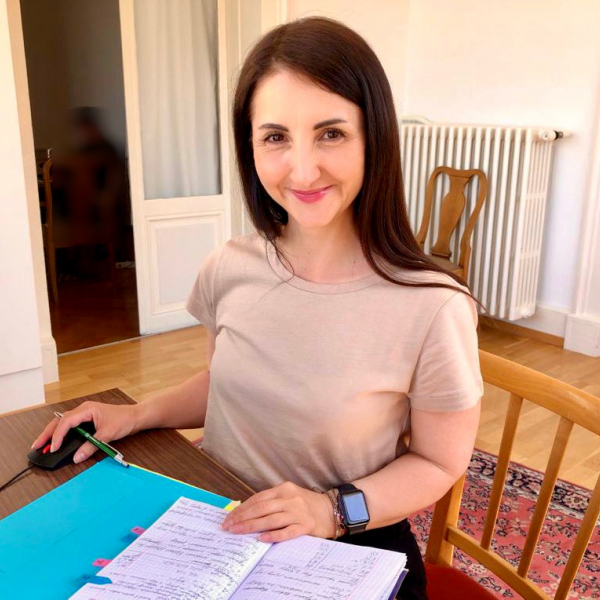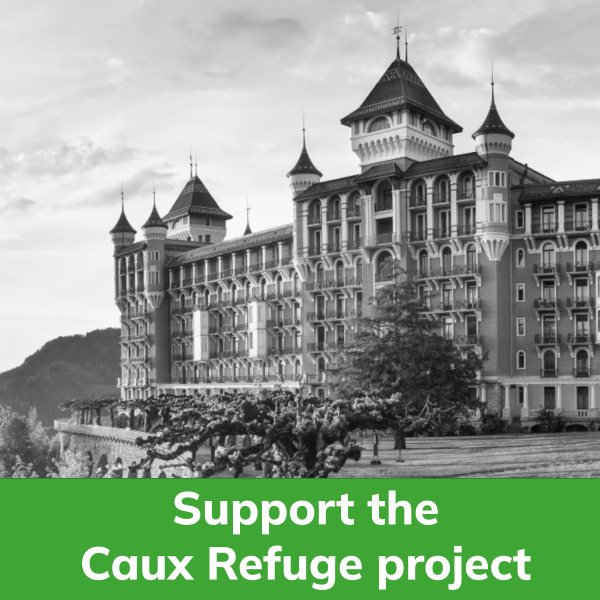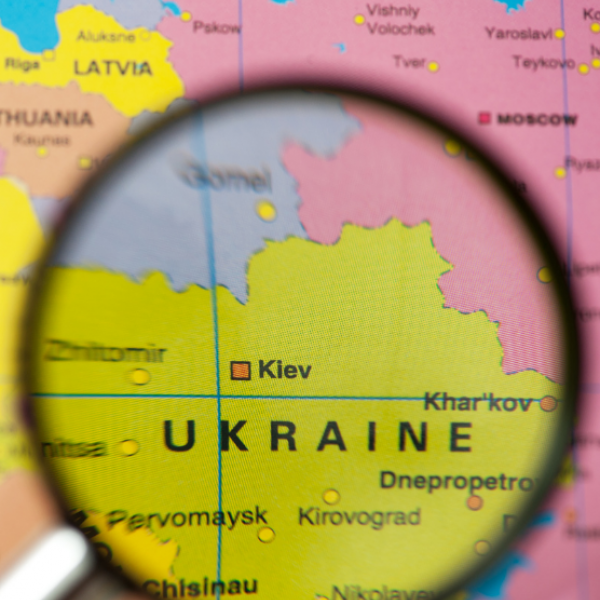A family split between Ukraine, Germany and Switzerland
A Caux Refuge interview by Anastasia Slyvinska
24/05/2022
This article is the fourth in a series of interviews with people affected by the war in Ukraine who have found temporary shelter at the Caux Refuge.
_______________________________________________________________________________________________________________________
As the war in Ukraine has been raging for 3 months, Oksana Stelmakh, a nurse from Kharkiv, reflects on how the current situation has impacted her family, now scattered over three different countries. Since her arrival in Caux early April she and a friend have been staying at the Caux Refuge, slowly taking steps into a new future.
Oksana, you arrived at the Caux Refuge on 3 April 2022. Were did you go first when you realized it was necessary to leave Kharkiv?
Oksana: When we left Kharkiv at the beginning of March we went straight to Kremenchuk, approximately 250km from our hometown. That was on the second or third of March. At first we planned to go to Western Ukraine but finally stayed in Kremenchuk because it was quiet there. Friends helped us to find a very nice place to stay and the locals there were very kind to us. At that point we were still sure that everything would be over soon and we would be able to come back to Kharkiv.
And then you realized that the situation escalated further?
Oksana: Yes, the situation only got worse after we left Kharkiv. During that period, Liuba called me. She is a friend and colleague of mine and we have known each other for many years. It was a rescue call, as it turned out later. Her daughter had worked with Initiatives of Change in the past and was trying to evacuate her mom to Caux. Liuba, considering her age, asked if I would be willing to accompany her.
But that meant separation from your son, daughter and son-in-law.
Oksana: Yes, it did. So I refused point-blank. I was hoping to be with my kids. If they stayed in Kharkiv - I would stay in Kharkiv. When we left we had five minutes to gather our belongings and I was ready to leave with them. But I mentioned Liuba’s proposal to my daughter and her husband that day.
And how did they react? Did they object?
Oksana: No, not at all, they actually said that I should definitely go and that they would be more at peace. Knowing I would be safe in Switzerland also meant they would have more space for manoeuvres and more mobility. It wasn’t an easy decision.
So at first you all decided to stay in Kremenchuk?
Oksana: Yes, at that time we were all still in Kremenchuk. We expected to stay there as long it would remain quiet there. We realized the situation could get worse but at least we could all jump straight into our cars and leave. There was quite a crowd of us, including my son-in-law’s parents and their two grandchildren as their daughter had already left Ukraine before the war and gone to France. So they planned to take the kids to their mom somehow.
So did they manage to evacuate together with their grandchildren?
Oksana: Yes, but in the end they went to Germany as their daughter had found a job there and speaks better German than French. She lives far from my daughter who is also in Germany now, but on the opposite side of the country. But at least they are in the same country.
Is it your first time in Caux? What were your first impressions of this place?
Oksana: I have never been to Caux before. It’s extraordinary. The beauty of this place is truly breathtaking. But I can’t help compare things to Ukraine, to our Crimea. I spent a lot of time there in my youth. It’s very beautiful and such comparisons always make me cry. (weeps)…I’m sorry.
Are you often in touch with your dear ones who stayed in Ukraine?
Oksana: Of course, we have a big family there. It’s the fourth or fifth generation who has been living in the same house since 1927. My grand-grandparents bought it and we still live there. That kind of inheritance is much more common in Western Ukraine or some villages. Our family is rare or maybe even unique in that regard in Kharkiv.
Are they all still in Kharkiv now?
Oksana: One of my cousins went to Poltava but she is already planning to come back to Kharkiv soon and another cousin never left Kharkiv. My 82-years old aunt also stayed. Of course, we are calling each other very often. Particularly with my son, he’s very much on his own in this situation so we chat even more often than we call each other.
Does your daughter plan to visit Caux?
Oksana: Yes, my daughter and her family visited me on the weekend before the Orthodox Easter for a couple of days. I was very happy to see them at last even though it was such a short visit. I will go and visit them in Germany as soon as they have an opportunity to host me. But I also realize that they have so many things to do and organize. They are starting everything from scratch in a new country. But my son can’t leave Ukraine for now so my biggest wish now is to see him!
And how does your daughter and her family feel in Germany?
Oksana: I have the impression it’s quite difficult. At first, my daughter was crying all the time, everything just felt bad, everything is so different from Ukraine. She just wanted to come back home. They attend intensive German classes every day. And dealing with German bureaucracy also takes time, of course.
For all of you the situation is completely new. How are you living through this?
Oksana: It is very difficult. My daughter told me that if she won’t be able to find a job in Germany she will try and go back home at the first opportunity. My job situation back home in Kharkiv is also very uncertain. I used to work as a nurse in a small clinic before the war broke out but I don’t know if there will be a job for me left when come back. Right now I send out appplications for jobs here in Switzerland. Our liaison coordinator Katia at the Caux Refuge is helping me with that, but it takes time. And language is crucial.
Have you already started French classes?
Oksana: I study with Eliane, our neighbour, with a group in Clarens and online. It’s intense. But I also realize that I can’t learn a new language in a month, not at my age. But I could look after ill people in clinics and at home as such care does not require advanced language skills. It’s all difficult but I still feel supported.
And what keeps your spirit high in such overwhelming times? You are still always so active, positive and smiling.
Oksana: I think that’s generally my character anyway. I wouldn’t say that I have had a difficult life and I am used to dealing with everything on my own. I divorced early and had to take care of our family during the huge 1990s crisis in Ukraine. And it’s good to always keep busy. That’s vital, otherwise you’ll most certainly get the blues.
And Liuba, with whom I travelled to Caux, is such a kind person. Friendship is integral when it comes to living through harsh times. It would be much harder if I were here on my own. With Liuba, I can discuss everything and it’s also comfortable just staying silent with her. She’s very understanding and I wish everyone had such a friend.
In spite of everything, what gives you hope for the future?
Oksana: You know, everything is changing. Nothing is permanent. Nothing can last forever. The curve has gone down so drastically that it means at some point it should go upwards as drastically again! I’m absolutely convinced and have trust in this.
About the author
Anastasia Slyvinska is a journalist from Kyiv, Ukraine. She has worked as a TV host, a foreign reporter and a manager for media outlets in Ukraine and abroad. Having worked at both Ukrainian and Canadian Parliaments she combines her media expertise with her political sciences background, holding a MA in Political Science. Anastasia has been part of the IofC community since 2014 when she first participated at the conference Just Governance for Human Security. She is currently living in Lausanne, Switzerland.
YOU CAN HELP!
As our own sources of funding are running out, we need your help to support the Caux Refuge project financially. We need CHF 20,000 to ensure that the group can be hosted until the end of 2022. We will use these funds to finance food aid and other costs related to the group's stay at the Villa Maria in Caux.
We thank you for your support. Please pledge your support here and specify “Caux Refuge” when making your contribution. If you have any proposals and questions, please get in touch with us.

Please note that the opinions expressed in these articles are those of the interviewees and not do not necessarily reflect the opinion of the interviewer and Initiatives of Change Switzerland.
